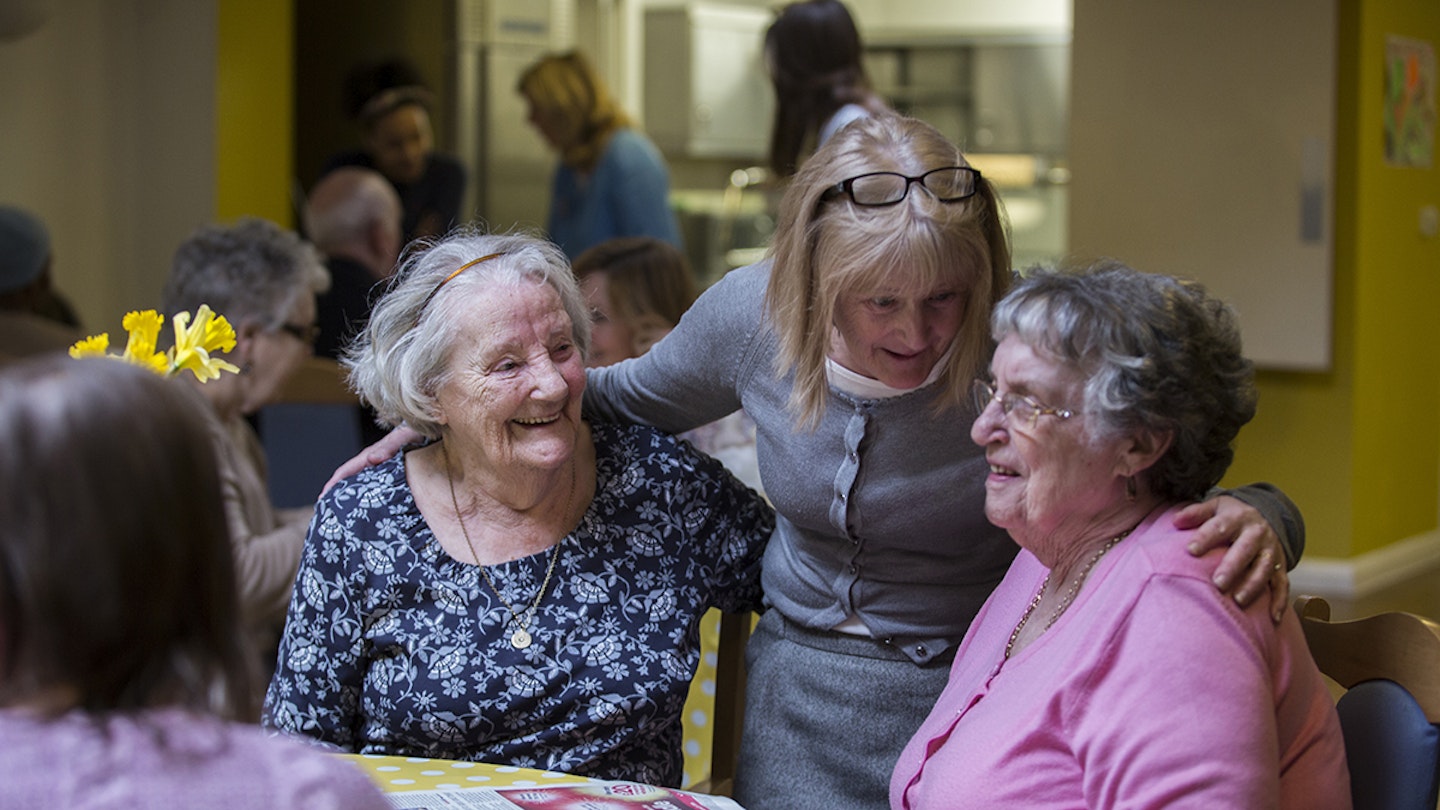There is growing awareness around dementia and Alzheimers disease in our society, and we've been really impressed with the way Emmerdale is currently covering this hugely important issue over the Christmas period.
There are thousands of people living with dementia in the UK (an umbrella term) and Alzheimers disease - a form of dementia - and as we get older as a society the chances are that most of us will be touched by these illnesses either ourselves, or in loved-ones.
Many of us are also caring for our parents as they get older, and may end up helping to care for loved-ones who have one of these conditions. It can be very hard work, and even isolating, and it's worth knowing that the Alzheimer's Society does an incredible amount of work educating people about how best to deal with the condition.
The Emmerdale episode planned to be shot soley from Ashley's point of view should also do more to make people think about all the ways sufferers can be affected by dementia.

Alzheimer’s Research UK's Christmas advert is so sad it needs to be shown after 9pm
Santa Forgot, narrated by Stephen Fry, imagines a world where Santa is living with the effects of dementia and no longer visits children on Christmas Eve. And although the advert is an animated cartoon, with a sort-of uplifting message of hope and remarkable medical research, will be shown post-watershed because of fears that it may upset children too much.
Hilary Evans, the chief executive of Alzheimer’s Research UK, said:
"Santa is an important cultural figure, but the idea that he too could be affected drives home the point that dementia can strike those most special in our lives."
It will definitely pull on your heartstrings but is such an important watch:
With the help of some experts we've compliled an essential list of 7 things you should know if you're caring for someone with dementia or Alzheimers Disease.
1. Find out all about dementia and Alzheimers
If you are caring for someone who has dementia or Alzheimer’s, one of the essential things to do is to find out as much information as possible about the condition. What stage are they at and what does it entail, what is the prognosis and are there any treatments or medications available? Knowing what you are up against can help you deal with the condition better, support your loved one and make all the necessary adjustments quicker.
2. Be sensitive to how they communicate
One of the first things you should know if you are caring for someone with dementia or Alzheimer’s is that they are likely to experience difficulties communicating. For example, they might struggle with remembering certain words or lose track of what they or you were saying, which can become frustrating for both them and you.
However, it is important that you don’t lose patience, as they can make them lose confidence and isolate them from social situations. Instead, make sure to speak slowly and clearly, as well as paying close attention to body language, as it can communicate things that verbal communication no longer can.
3. Behaviour may change
Once dementia or Alzheimer’s begin to develop, you might notice that the person begins to act differently – for example, they might lose interest in things that they loved doing, they might become agitated, suspicious and repeatedly ask the same questions.
The key is not to dismiss these actions, as they are often a clue to something else – the person might be confused about something, hungry or thirsty, afraid or under-stimulated. Try to understand where the frustrations are coming from and remove them as much as possible, as that can prevent the episodes from occurring.
4. Try 'Reality Therapy'
It can be difficult to talk to someone suffering from dementia, as their sense of reality often changes, for example, they might think that they are themselves twenty years ago, or that you are someone you’re not.
The Fisher Center for Alzheimer’s Research suggests that the best approach to this is ‘reality therapy’, which in essence is playing along, especially if they seem happy to be in their memories or fantasies. Your support and acknowledgement will improve their mood and alleviate any feelings of stress or anxiety.
5. Help with their independence
As dementia and Alzheimer’s are degenerative conditions, they will eventually lead to reduced levels of independence, making those with the condition more reliable on family and carers. However, if you are caring for someone with the condition, remember not to ‘take over’ – doing as much as they can for themselves will help them stay confident and maintain their self-esteem.
Involve them as much as you can, leaving plenty of time for tasks and focusing on the process of doing something, instead of the completion.
6. Make sure they're safe
Conditions like dementia and Alzheimer’s can affect a person’s ability to judge situations and assess risks, increasing the chance of injury. There are a number of things you can do to prevent this from happening, for example, if they are prone to wandering, make sure that doors are properly locked and that the neighbours and your local police know to look out for them and alert you, should they go missing. It is also a good idea to use locks on cabinets that contain alcohol, chemicals or sharp objects to prevent them from accidentally injuring themselves.
7. Look after yourself
Caregiving can take a toll on your health, both physical and mental, which is why it is essential that you don’t try and take on all the duties of care yourself. Get other members of your family involved as much as possible – not only will this ease your workload, but it is also good for the person suffering from dementia/Alzheimer’s, as spending time with more than one person is greatly beneficial.
Make sure to keep talking to and seeking support from your family and friends, as that will help you work through your emotions and prevent you from experiencing too much mental strain. If you feel you are not coping, you shouldn’t be afraid to seek further assistance, either by talking to those going through a similar experience or looking into professional care services to help you.
Grainne is the Clinical & Governance Lead at Elder (www.elder.org), an online platform that provides high-quality home care for customers across the UK.
Do you know people caring for family or friends with dementia or Alzheimer's disease? Share your stories over on Facebook or Twitter
**You might like to read... **
Emmerdale: Ashley Thomas to have special episode dedicated to his dementia battle
